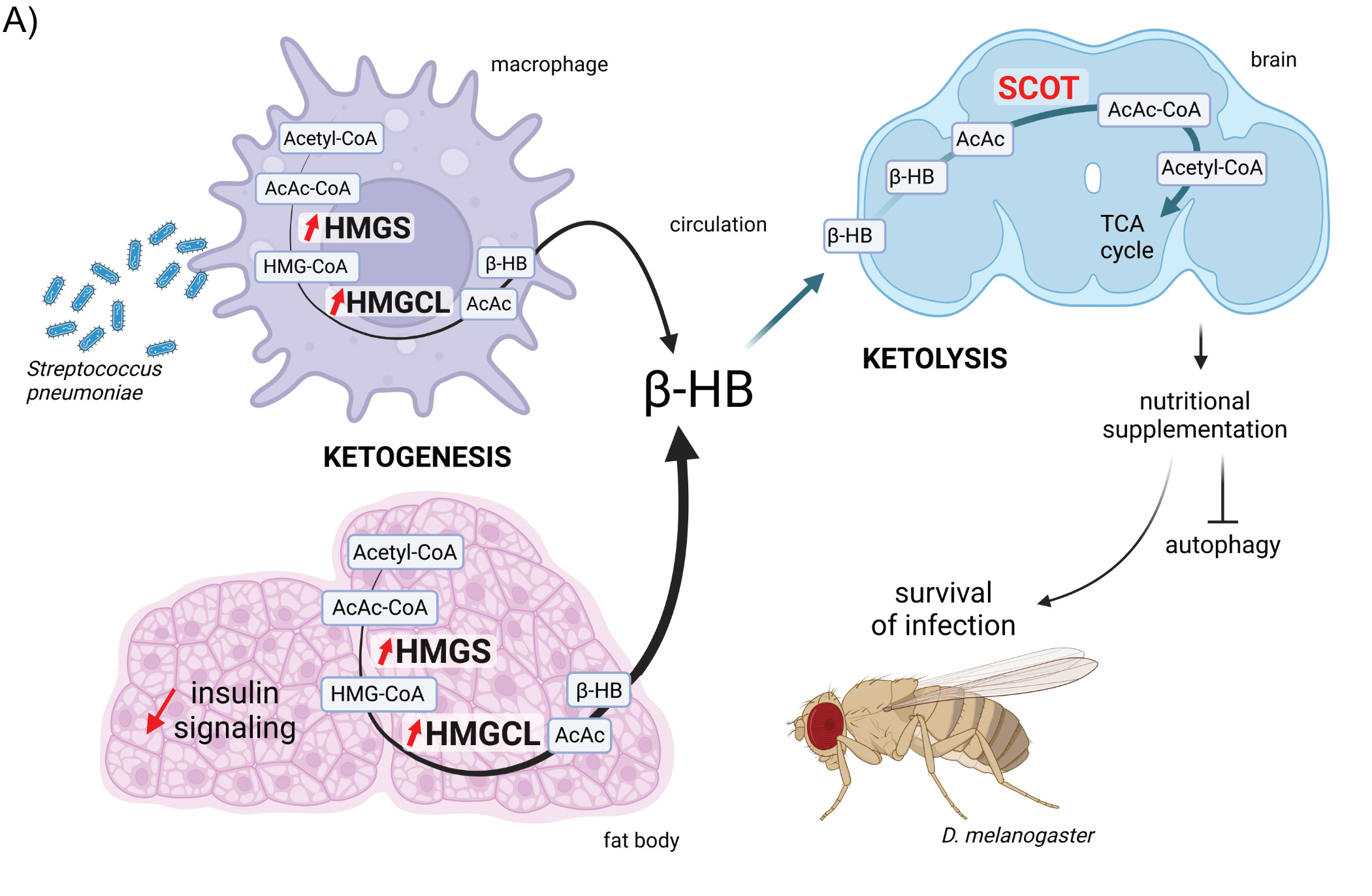Ketogenesis nutritionally supports brain during bacterial infection in Drosophila

Mounting an immune response is a nutritionally demanding process that requires the systemic redistribution of energy stores towards the immune system. This is facilitated by cytokine-induced insulin resistance, which simultaneously promotes the mobilization of lipids and carbohydrates while limiting their consumption in immune-unrelated processes, such as development, growth, and reproduction. However, this adaptation also restricts the availability of nutrients to vital organs, which must then be sustained by alternative fuels.
A research group led by Dr. Adam Bajgar from the Department of Molecular Biology and Genetics used a model of severe bacterial infection in Drosophila melanogaster (fruit fly) to investigate whether ketogenesis (the production of ketones) can help the body survive periods of nutrient limitation during an immune response.
They found that during bacterial infection, ketones are produced in adipocytes (fat cells) and macrophages (immune cells), leading to increased levels of β-hydroxybutyrate in circulation. While this metabolic process is crucial for survival during infection, it is not necessary for the elimination of the pathogen itself. Circulating ketones primarily serve as an energy source for neurons in the brain. When the brain is deprived of ketones during infection, achieved experimentally by switching off the gene responsible for ketone metabolism in this tissue, autophagy occurs in the brain. In simple terms, brain cells begin to digest their own organelles. These individuals then exhibit significantly lower locomotor activity compared to infected fruit flies with sufficient ketone levels.
While ketone production by adipocytes has already been demonstrated in other situations, the discovery that activated macrophages also produce ketones was surprising to researchers. The significance of ketones produced by macrophages may not necessarily be related to nutritional support for vital tissues; instead, they may play a signaling, anti-inflammatory, or antioxidant role, as previously observed in mammals.
The results of this study experimentally demonstrate the essential role of ketogenesis as a tolerance mechanism necessary for survival during bacterial infection and highlight the importance of the immune system-adipocyte-brain axis.
Krejčová, G., Novotná, D., and Bajgar, A. (2025). Ketogenesis nutritionally supports brain during bacterial infection in Drosophila. Brain. Behav. Immun. 125, 280–291. 10.1016/j.bbi.2025.01.008.
Contact: Mgr. Adam Bajgar, Ph.D. (bajgaa00 at prf.jcu.cz)

